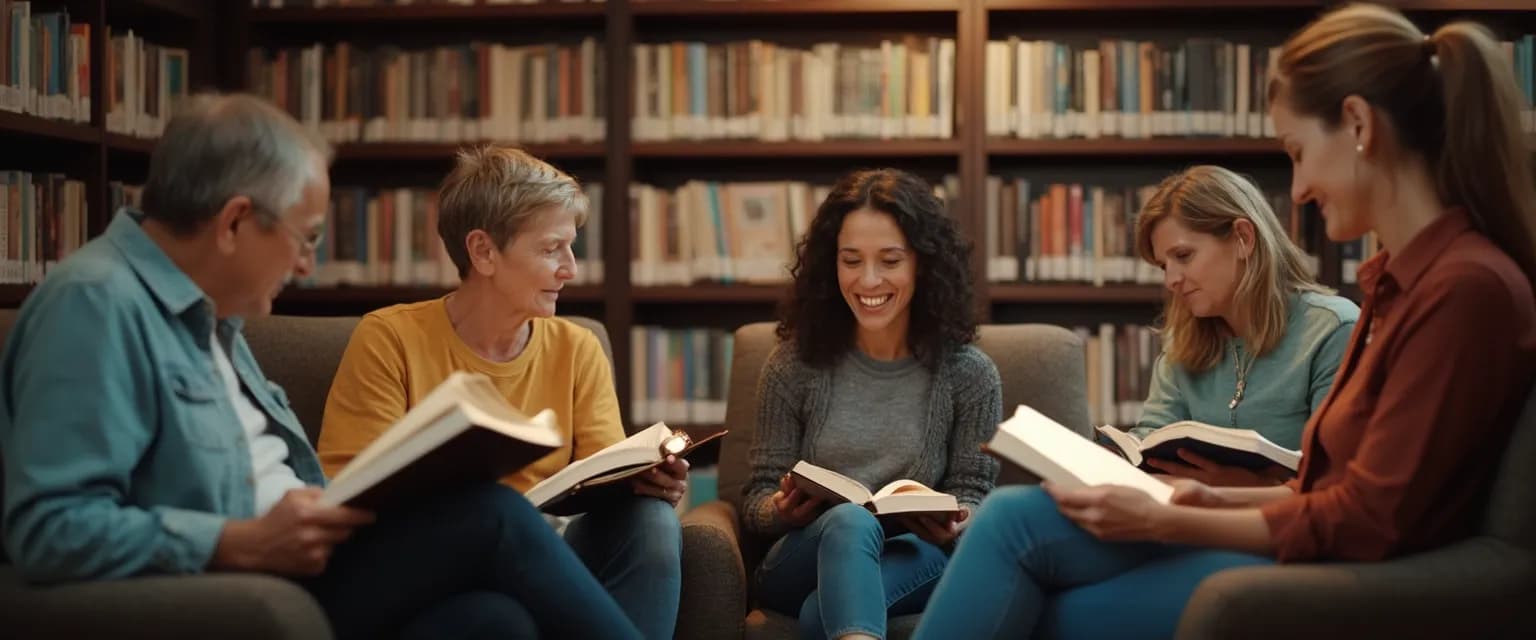Creating Healing Grief Share Book Clubs in Libraries for Community Recovery
When grief touches a community, the power of shared stories becomes a beacon of healing. Libraries stand at the intersection of resources and community connection, making them ideal hosts for grief share book clubs. These gathering spaces offer more than just books—they provide a sanctuary where individuals can process loss collectively through the lens of grief share books. For those navigating the choppy waters of bereavement, finding solace in literature alongside others who understand can transform isolation into connection.
Libraries naturally serve as neutral, accessible spaces where diverse community members can gather without the clinical feel of therapy settings. Through carefully selected grief share books, these institutions create opportunities for meaningful dialogue about loss in ways that honor individual experiences while fostering collective healing. The shared reading experience creates a gentle emotional support system where participants can explore grief through characters and stories that resonate with their own journeys.
Selecting Meaningful Grief Share Books for Library Book Clubs
The foundation of an effective grief share book club lies in thoughtful literature selection. The best grief share books offer authentic perspectives on loss while providing avenues for reflection and healing. When building your collection, aim for diversity across several dimensions: types of loss (death, divorce, job loss), cultural perspectives, and literary formats.
Consider creating a balanced collection that includes these grief share books categories:
- Memoirs that chronicle personal grief journeys
- Fiction with themes of loss and resilience
- Poetry collections that capture grief's emotional landscape
- Self-help titles with practical coping strategies
When evaluating potential grief share books, look for works that avoid simplified platitudes about grief. Instead, prioritize titles that acknowledge grief's complexity and offer honest perspectives on healing. Books like "Option B" by Sheryl Sandberg, "The Year of Magical Thinking" by Joan Didion, and "Men We Reaped" by Jesmyn Ward provide authentic accounts that validate diverse grief experiences.
For younger participants, consider age-appropriate grief share books like "The Invisible String" by Patrice Karst or "When Dinosaurs Die" by Laurie Krasny Brown. These titles make grief discussions accessible across generations, allowing families to process loss together.
Facilitating Healing Discussions Around Grief Share Books
Creating a safe environment for grief share books discussions requires thoughtful facilitation. Begin by establishing clear guidelines that emphasize confidentiality, respect for different grief expressions, and the absence of judgment. These boundaries help participants feel secure enough to engage authentically with difficult emotions that grief share books may evoke.
Effective discussion prompts move beyond simple plot analysis to explore emotional resonance. Questions like "Which character's grief journey felt most familiar to you?" or "What passage gave words to feelings you've struggled to express?" invite meaningful connections between literature and personal experience.
When facilitating, be prepared for emotional moments. Having tissues available, allowing for silence, and knowing when to gently redirect conversations are essential skills. Remember that discussions about grief share books may naturally ebb and flow between lighter moments and deeper emotional territory—both are valuable parts of the healing process.
Consider rotating facilitation responsibilities among group members who feel comfortable leading, or partner with a mental health professional who can guide discussions when particularly sensitive topics arise. This shared leadership model reinforces the collaborative nature of community healing through grief share books.
Expanding Your Library's Grief Share Book Club Impact
To maximize your grief share book club's reach, consider developing partnerships with local hospice organizations, funeral homes, and faith communities. These connections can help promote your program to those who might benefit most from grief share books discussions while providing additional resources when needed.
Create supplementary resource lists that participants can take home, including additional grief share books recommendations, local support groups, and online communities. Consider developing take-home discussion guides that allow members to continue reflecting between meetings.
Make your grief share books club accessible by offering virtual participation options, providing childcare during meetings, and scheduling sessions at various times to accommodate different work schedules. Remember that grief doesn't follow a predictable timeline—some may benefit from these discussions years after their loss, while others seek support in the immediate aftermath.
By thoughtfully implementing these grief share books strategies, libraries can create meaningful spaces for community healing that honor individual journeys while fostering collective resilience. These programs remind us that while grief may be universal, we don't have to navigate it alone.




